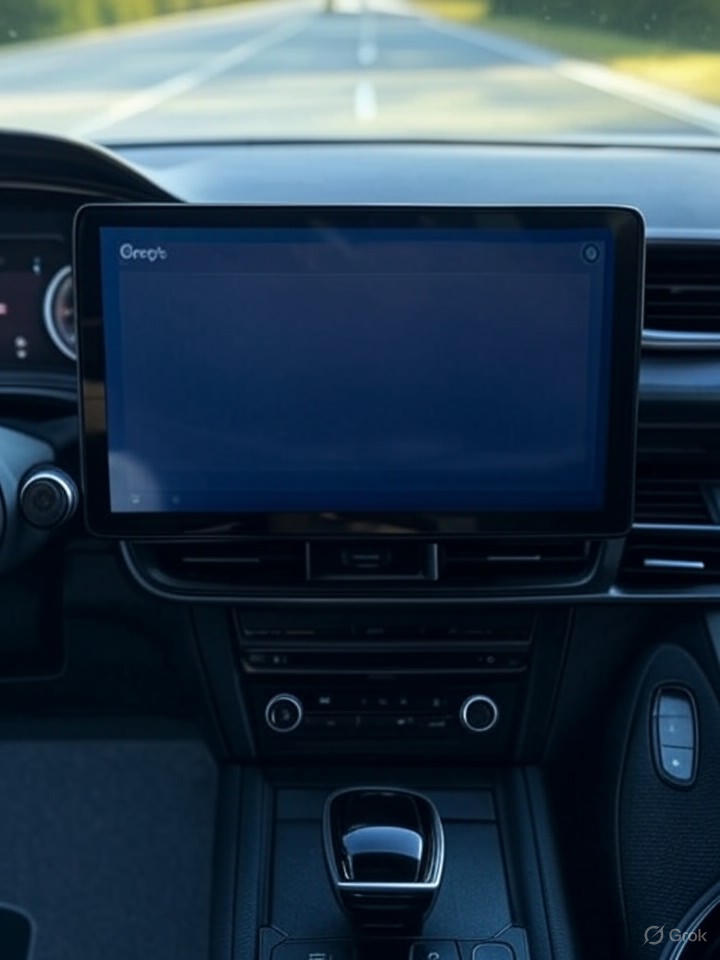In a significant shift within the automotive technology landscape, Google has begun transitioning its advanced AI model, Gemini, to replace the long-standing Google Assistant in Android Auto. This change, initially hinted at during the I/O conference in May 2025, is now being rolled out to select beta users, marking a pivotal development in how drivers interact with their vehicles.
The rollout of Gemini is appearing in Android Auto versions 15.6 and 15.7, as reported by Android Central. Users are prompted to switch to Gemini when activating voice commands, which introduces enhanced capabilities such as improved natural language processing and real-time features, setting it apart from the Google Assistant. This upgrade is not merely cosmetic; it offers a more sophisticated interaction model tailored for the driving experience.
Early User Experiences and Features
Feedback from beta testers on platforms like Reddit indicates a smooth integration process. One user noted that the familiar “Hey Google” voice trigger now activates Gemini instead, demonstrating the seamless transition. As highlighted by Business Standard, the inclusion of Gemini Live support facilitates more dynamic and conversational interactions while driving, enhancing user engagement.
This upgrade comes with notable features, including real-time translations and smoother voice controls, catering particularly to multilingual drivers or those managing complex queries on the road. In a blog post from Google, the company emphasized that the aim of this integration is to create a “more helpful” experience for users.
Back in May 2025, Google had teased this integration, and now, months later, users are beginning to see the promised advancements materialize. According to TechRadar, Gemini’s capabilities extend to app integration and natural language understanding, allowing it to manage follow-up questions without needing to repeat context—an improvement over the Google Assistant’s more structured responses.
Technical Advancements and Industry Impact
At its core, Gemini leverages multimodal AI, efficiently processing voice, text, and visual inputs. Reports from Phandroid indicate that beta tests have shown Gemini to provide proactive suggestions, such as alternative routes based on real-time traffic data, enhancing safety and convenience for drivers.
As the automotive industry evolves, this shift may have significant implications for manufacturers that partner with Android Auto. Companies like Ford and Toyota will need to adapt to Gemini’s capabilities, potentially influencing future vehicle designs. Features such as AI-curated playlists and predictive maintenance alerts could redefine personalized driving experiences.
From a business perspective, Google is also introducing a monetization strategy with the launch of a premium tier for Gemini, priced at $20 per month. This move could drive subscriptions, especially if the basic version of Gemini in Android Auto showcases advanced features that attract users.
While the initial rollout has generated excitement, some beta users have expressed concerns over privacy issues. As discussed in a thread by Proton Drive in July 2025, the default integration of Gemini accesses sensitive information, raising questions about user control. Google addresses these concerns by emphasizing the opt-in nature of many features, though the transition has not been without its challenges.
The implementation of Gemini is a defining moment in AI technology within vehicles. As the beta continues to expand, experts anticipate a full rollout by early 2026. Google’s official communications reinforce the vision that Gemini will surpass the capabilities of previous models, reflecting a strategic pivot toward AI that could transform daily commutes into more intelligent journeys.
Broader trends also highlight the increasing role of AI in mobility. Discussions on platforms like X (formerly Twitter) and Reddit indicate a growing sentiment that Google Assistant may soon become obsolete as users adapt to Gemini. Ultimately, Google’s investment in Gemini for Android Auto signals a commitment to enhancing human-machine interaction on the road, setting the stage for innovations that could redefine the driving experience.







